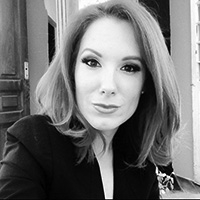Truth be told, I was never a fan of Charlie Hebdo.
As a journalist living in Paris when the publication was firebombed in 2011, I was torn over the role of satire exhibited by the weekly. For the French, the ability to offend the sacred is a cultural staple in their “mission to civilize.” In a country that has cast a blind eye to racism against its minorities, going so far as enacting strict policies against asking about ethnic identity, I questioned why the publication didn’t go after these clichés with the same fervor. What good could come from provocation for the sake of provocation that fuels anti-immigrant sentiment?
But when the news broke that Charb, Wolinski, Cabu, and others were killed at Charlie Hebdo, I switched frantically between CNN, the BBC, France24, and France 2, feeling horrified. I feared that in a country that has been historically unequipped to embrace difference, nothing would ever be the same.
Many things contributed to the shock of the murders. Those who gathered at the Place de la République that night said they wanted to stand up for freedom of the press, something they believe is a staple of French democracy. “Freedom of speech is a value that France exported to the rest of the world,” said a protester on live TV. In a deeper sense, though, most were mourning the deaths of France’s most famous cartoonists and journalists, with whom they shared political values and beliefs. It was about Frenchmen just like them.
It would not be an isolated act of terror for long. Soon enough, the Kouachi brothers and Amedy Coulibaly killed members of France’s minority communities. This was different from the shootings in Toulouse and Montaban in 2012. Government leaders could not simply shrug off this rampage of terror as anti-Semitic or xenophobic. For the first time in modern history, Jews and Arabs were also implicated in a national tragedy. The attacks hit at the heart of republic both for the Français de souche as well as the déclassé.
Even more disturbing was the fact that equally French men perpetrated the killings. For the Kouachis and Coulibaly, their victims were the scapegoats of French and U.S. foreign policies in the Maghreb, Syria, and the Middle East. In their haphazard logic, they were also slain because Coulibaly and the Koauchis were enraged about the woes of assimilation in France.
For the French, it would have been easier if the terrorists had traveled from Yemen or even Algeria. The attacks revealed a growing malaise and inability to reconcile an 18th-century ideal of what it means to be French with a post-colonial legacy. Many wondered how these three young men could have become so radical. Why do they hate France? Are Jews no longer safe here? What would the implications of the attacks be on French Arabs like slain policeman Ahmed Merabet? Or even, are there other Cherif and Said Kouachis?
If there was ever a contemporary version of a Greek tragedy, this was it.
Throughout the 1960s, Frantz Fanon, Martin Deming Lewis, and others explained the meaning of assimilation in France. Unlike the U.S. “melting pot” narrative, assimilating in France means stripping away difference and entirely embracing the values of the republic. Adopting the language and pledging allegiance to a Eurocentric France would make them entirely French.
But even with language and citizenship in hand, that hasn’t always been the case. It was only a decade ago that second-generation immigrants rioted in the streets, burning cars and public buildings to protest the lack of opportunities. Today, the country’s youth unemployment rate is 30 percent and is estimated to be higher among minorities.
More than 3 million marched in Paris on Sunday. What made it a national cri de coeur was not the fact that they were all expounding the same French values. It wasn’t about Marianne. Nor was it about Napoleon’s ideas. Rather, for the first time they were united despite their differences. After all, unity is never constructed on homogeneousness but on finding common ground.
Perhaps this was the reason Marine Le Pen of the far-right National Front was the only political leader missing in Sunday’s demonstration. In the past, she has made the challenge of radical Islam the core of her party’s politics.
We are left with more questions than there can be answers. Once the shock and awe of the Paris attacks have passed, will there be a retrenchment within French society? Or will the French ask the hard questions about how to build a nation inclusive to all? How long will a shared common ground of rejecting fear remain?




